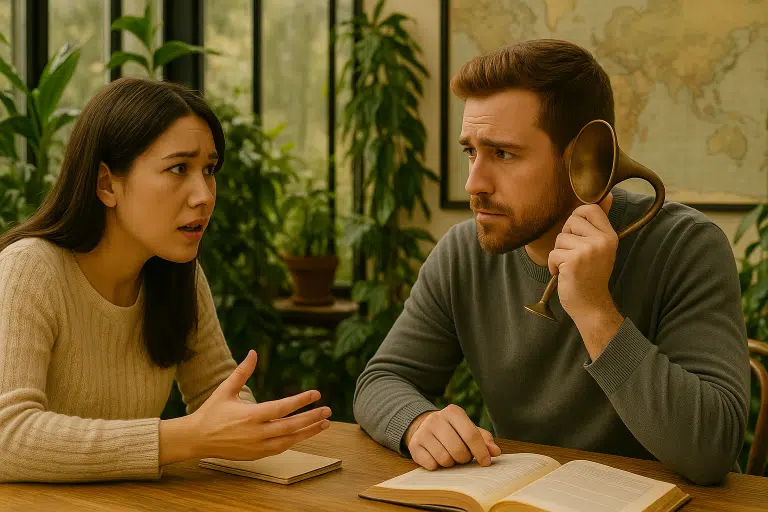Technology’s influence on communication and relationships is significant. It brings benefits but also challenges. While technology offers numerous benefits, it also poses unique challenges to maintaining healthy relationships.
This article explores the impact of technology on relationships and offers couples therapy strategies for effective navigation.
The Role of Technology in Relationships
Technology has revolutionized communication by providing various platforms such as social media, texting, and video calls. While these platforms often enhance connectivity, they can also do the opposite by creating the feeling of distance within relationships. Couples may struggle with time management and excessive device use.
Lack of presence in our interactions with partners can diminish the quality of our time together. It is a crucial aspect of a healthy relationship. Technology plays a significant role in this context. Its excessive use can undermine emotional intimacy, trust, and overall relationship satisfaction.
It is important to recognize the impact of technology on our relationships. Take proactive steps to prioritize presence and connection with our partners.
Communication Challenges and Solutions
Challenges
Technology enables us to connect with loved ones regardless of geographical distances. Yet, it can also impede effective communication in relationships. We’ve all experienced it: misinterpreting a text message and assigning unintended meanings to those seemingly innocent words on the screen.
Such misinterpretations can lead to misunderstandings and conflicts between partners, highlighting the potential pitfalls of relying solely on digital communication. It is important to be aware of these challenges and to actively strive for clarity and understanding in our interactions.
Solutions
Couples therapy strategies play a vital role in navigating the challenges posed by technology. These strategies involve fostering open and honest communication, establishing boundaries for technology use, and honing active listening skills.
By engaging in transparent and sincere conversations during therapy sessions, you and your partner can address instances where text messages may have been misinterpreted or contained hidden meanings. This proactive approach to communication helps prevent conflicts from escalating and promotes a harmonious and understanding relationship.
Nurturing Emotional Connection
In a technology-driven world, couples may struggle to maintain emotional connection and intimacy. If we are better at communicating with our partners via social media or text message, it is important that we work toward more effective, direct face-to-face contact. Face-to-face interactions are essential for constructing and sustaining emotional bonds.
Couples therapy can offer strategies to prioritize quality time, engage in meaningful conversations, and create technology-free zones to foster emotional connection and strengthen the relationship. Although these handheld devices have many great features, we need to be able to put our phones down for a while when it comes time to be actively present with our partners.

Managing Social Media Impact
Another source of relationship stress that comes from technology is social media. Social media can have a profound influence on relationships. We often are presented with a romanticized version of the lives of those we know personally, and those we do not know personally, and this view of perfection cast to us on the screen can trigger feelings of jealousy, insecurity, and comparison. It is important that we remember, even the people behind those screens have their own set of personal problems and concerns, no one leads a perfect life!
Couples therapy strategies can focus on building self-esteem, promoting trust, and encouraging open discussions about social media usage. When we are able to creating shared guidelines for engaging with social media and maintaining transparency with one another, it can help to mitigate any potential conflicts that may arise as a result of social media.
Balancing Individual and Shared Technology Use
Individual technology use within relationships can sometimes lead to feelings of neglect or disconnection. This can be especially true if one member, or both members, of the couple are strongly focused on their social media influence. Couples are able to work together to establish boundaries and expectations regarding individual device usage.
These boundaries often look like couples creating space where they can either have a phone free zone or engage in phone use together through apps. Couples therapy can guide partners in exploring shared technology activities that promote bonding, such as engaging in hobbies or using apps designed for couples to enhance communication and connection.
Overcoming Technological Infidelity
Technology has opened new avenues for infidelity, including online emotional affairs or sexting. With the overexposure to a false sense of perfection on the internet in our age of technology, it is important to recognize that if infidelity occurs via technology, it will take time and effort to rebuild the trust within our relationship. Couples therapy can provide a safe space for addressing issues of trust, rebuilding emotional connection, and establishing guidelines for healthy technology usage.
We, at Couples Counselling Centre can help you and your partner to navigate the intricate feelings that arise from technological infidelity and develop strategies to rebuild trust and strengthen the relationship.
In the end
While technology undoubtedly influences modern relationships, it is possible to harness its benefits while mitigating its negative impact. Couples therapy can provide valuable guidance in navigating the challenges posed by technology. By fostering open communication, nurturing emotional connection, managing social media impact, balancing individual and shared technology use, and addressing technological infidelity, couples can create a healthy and thriving relationship in the digital era.
Hertlein, K. M., & Piercy, F. P. (2008). Therapists’ assessment and treatment of internet infidelity cases. Journal of marital and family therapy, 34(4), 481-497.
Hertlein, K. M., & Webster, M. (2008). Technology, relationships, and problems: A research synthesis. Journal of marital and family therapy, 34(4), 445-460.
Jain, G., & Sen, S. (2018). Adultery in the age of technology: Complexities and methodological challenges in studying internet infidelity. Internet Infidelity: An Interdisciplinary Insight in a Global Context, 31-43.
McDaniel, B. T., Drouin, M., & Cravens, J. D. (2017). Do you have anything to hide? Infidelity-related behaviors on social media sites and marital satisfaction. Computers in human behavior, 66, 88-95.












